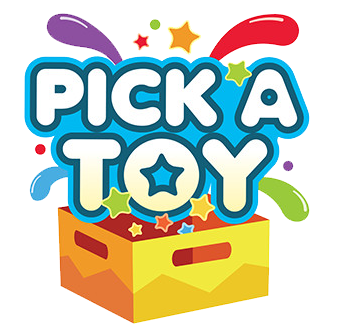Title: "Unlocking Potential: The Role of Sensory Toys in Occupational Therapy"
Introduction
Occupational therapy is a dynamic healthcare profession that focuses on helping individuals develop or regain the skills needed for daily life activities. It's a field that often involves creative and holistic approaches to improving one's quality of life. One such approach that has gained prominence is the use of sensory toys. These specialized tools play a pivotal role in occupational therapy by addressing sensory processing issues, enhancing fine motor skills, and fostering emotional and cognitive development. In this blog, we'll explore the significant role of sensory toys in occupational therapy and how they can make a world of difference for individuals of all ages.
Understanding Sensory Processing
Before delving into the role of sensory toys, it's essential to grasp the concept of sensory processing. Sensory processing refers to how our nervous system receives, organizes, and responds to sensory information from the environment. Sensory information is gathered through our senses: sight, hearing, touch, taste, and smell. For some individuals, this process may not function as smoothly as it should, leading to sensory processing issues.
Sensory processing issues can manifest in various ways, such as hypersensitivity (overreacting to sensory input) or hyposensitivity (underreacting to sensory input). Occupational therapy often comes into play when addressing these issues, and sensory toys are valuable tools in this therapeutic journey.
The Role of Sensory Toys
Sensory Stimulation: Sensory toys are designed to provide controlled and purposeful sensory stimulation. They can help individuals with sensory processing issues learn to process sensory information more effectively. For instance, fidget spinners or textured balls offer tactile stimulation, while sensory bins filled with materials like rice, sand, or water beads engage multiple senses.
Enhancing Fine Motor Skills: Many sensory toys require precise hand movements and coordination, making them excellent tools for improving fine motor skills. Activities like squeezing stress balls or manipulating small objects help develop hand strength and dexterity.
Regulation of Emotions: Sensory toys can have a calming and soothing effect, making them valuable for emotional regulation. For instance, weighted blankets or soft, squeezable toys provide deep pressure input that can help individuals feel more grounded and relaxed.
Promoting Cognitive Development: Sensory play fosters cognitive development by encouraging problem-solving, exploration, and creativity. Puzzles, shape sorters, and building toys like LEGO bricks engage cognitive processes while providing sensory input.
Individualized Therapy: One of the strengths of sensory toys is their adaptability to individual needs. Occupational therapists can select specific toys and activities tailored to each client's sensory profile and therapeutic goals.
Improving Attention and Focus: Sensory toys can help improve attention and focus in individuals with attention-deficit disorders or those who struggle with concentration. Fidget tools like stress balls or textured rings can be discreetly used to channel excess energy and improve concentration.
Facilitating Communication: Some sensory toys, such as communication boards with textured symbols or tactile books, assist individuals with communication challenges, such as those with autism or speech disorders.
Conclusion
Sensory toys are much more than mere playthings; they are powerful tools that occupational therapists use to unlock the potential of their clients. By addressing sensory processing issues, enhancing fine motor skills, regulating emotions, and promoting cognitive development, these toys play a crucial role in helping individuals achieve their goals and improve their quality of life. Whether it's a child with autism learning to communicate or an elderly individual recovering from a stroke regaining fine motor control, sensory toys are versatile allies in the journey toward a more fulfilling and independent life. The world of occupational therapy is richer and more effective with the inclusion of these sensory marvels.
